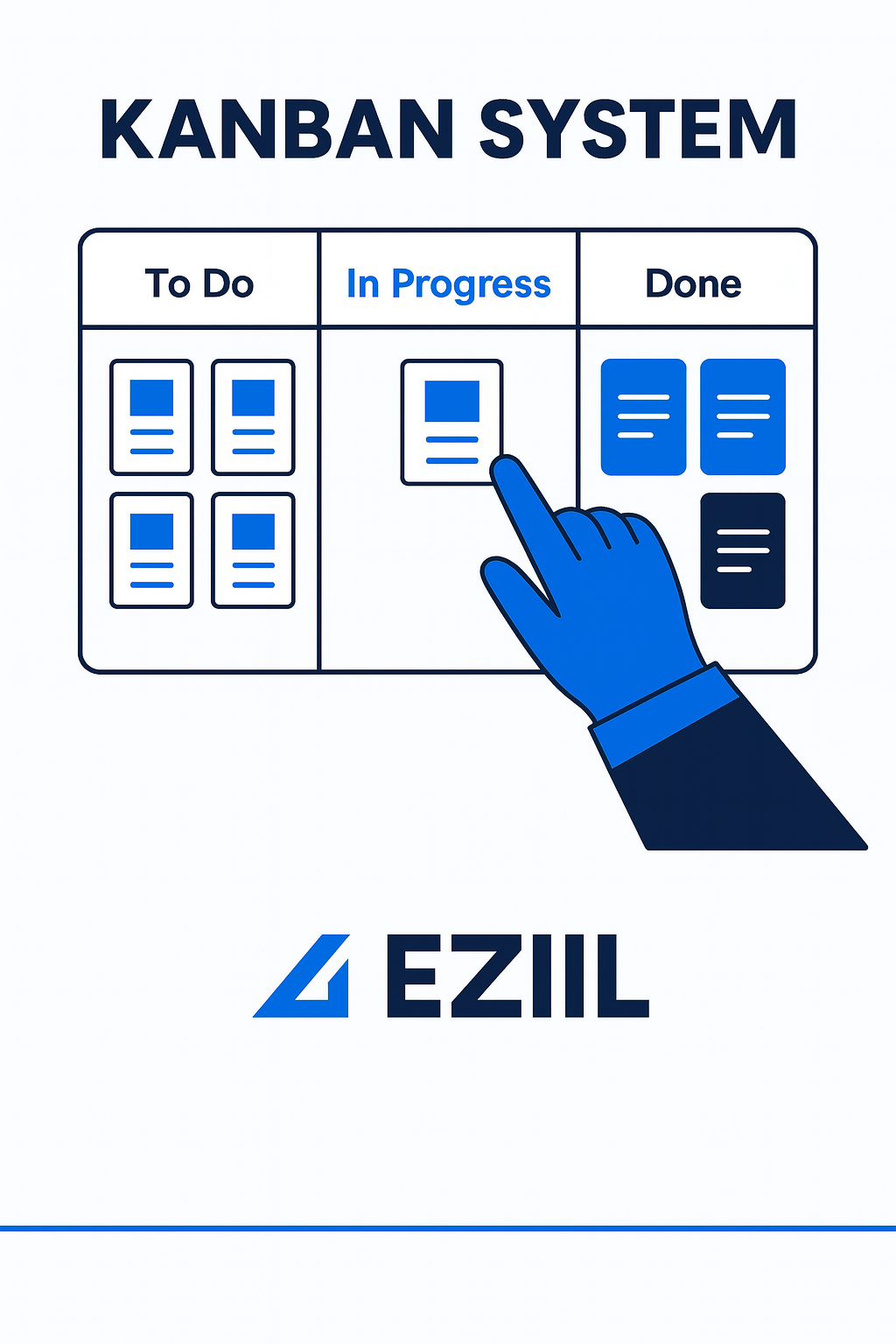Kanban
What is Kanban?
Kanban is a scheduling system for just-in-time (JIT) production, originally developed at Toyota, that uses visual signals (cards) to pull work through a process only as needed.
In practice, a Kanban system in a fabrication shop might involve a card on a material rack that, when emptied to a certain point, triggers reordering of steel stock, or a signal that the welding station is ready for the next assembly only when they have capacity (preventing excessive queue build-up).
The Japanese word “kanban” means “signboard” or “card”, reflecting the visual nature of the system.
By implementing Kanban, small shops can avoid overproduction and excess inventory – a common issue where one department might otherwise push work faster than the next can handle.
A simple example is a two-bin Kanban for bolts: when the first bin is empty, a card is sent to purchasing to reorder, while production uses the second bin. This ensures you never run out or hold too much stock.
Kanban boards are also used in project management to track status of jobs (for example, Cutting → Welding → Completed), which gives a real-time visual of WIP.



